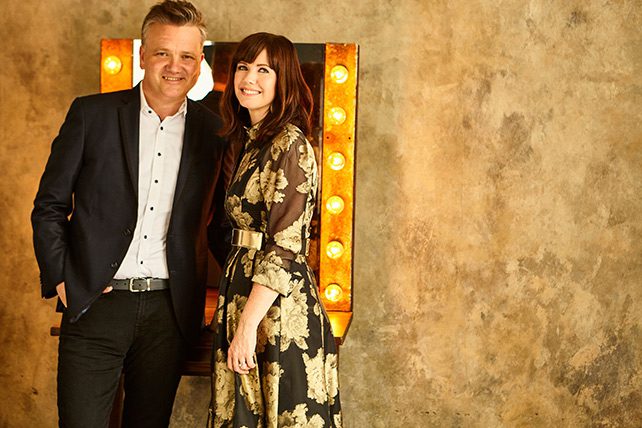(RNS) — The melody that changed Keith Getty’s life was first scratched out on the back of an electric bill in a humble flat in Northern Ireland.
This isn’t great, he thought at the time.
But it was the best he could come up with. So he sent a recording of the melody on a CD to Stuart Townend, an English songwriter he’d met a few months earlier at a church conference, in hopes Townend might be able to turn the melody into a serviceable hymn.
Getty was right.
That melody became the basis for “In Christ Alone,” which was released in 2001 and has become one of the most popular songs in Protestant churches, according to the Christian Copyright Licensing International, which tracks songs sung in churches. The song also launched a new era of modern hymn writing.
All of which came as a surprise to the tune’s authors.
In a 2016 interview recounting the origins of “In Christ Alone,” Townend said there was nothing memorable about his meeting with Getty.
“We got together, we had a coffee, nothing particularly eventful happened,” Townend recalled. “He said he’d send me a CD with some of his song ideas. … It arrived and I wasn’t expecting anything.”
Then he popped in the CD and immediately changed his mind. He eventually called Getty and the two talked about writing a musical version of a church creed that would recount the story of the life, death and resurrection of Jesus.
Related article: Lauren Daigle Breathes New Life into ‘In Christ Alone’
The song originally started with the line “My hope is found in Christ alone.” Getty suggested switching the verse around to start with “In Christ alone.” After some hesitation, Townend did so, and the song came to life. Getty has described Townend’s lyrics for the song as “absolutely brilliant,” capturing the story of Christian faith in a powerful and lovely way.
Getty has sometimes called “In Christ Alone” a “rebel song” — a kind of protest against the more contemporary worship songs that sound more like pop music than traditional hymns. It was the first of a series of modern hymns he’s helped write, combining singable melodies with theological reflection.
He believes they are the type of songs Christians need in a complicated and ever-changing world.
“If we’re going to build a generation of people who think deep thoughts about God, who have rich prayer lives, and who are the culture-makers of the next generation, we need to be teaching them songs with theological depth,” he said in a 2016 interview about his approach to hymn writing.
Getty and his wife, Kristyn, who perform together and tour with their four kids and an Irish-themed band, are back in Nashville, Tennessee, after nine months on lockdown in Northern Island, where they have a home. Being back in Ireland was respite for the Gettys after a decade and a half of touring, recording and building a music publishing business. They spent much of the time walking on beaches, hanging with their kids and hosting weekly hymn sings on Facebook Live.
They returned to Nashville just in time for their annual Sing! conference, which is expected to draw about 6,500 people, with an additional 40,000 streaming online. The event, held this year on Sept. 13-15, has drawn more than 16,000 people in person in the past and has included packed hymn singing events at both the Grand Ole Opry and the Bridgestone Arena in downtown Nashville.
Presbyterian minister Kevin Twit, founder of Indelible Grace, a Nashville music company that sets traditional hymns to new tunes, is a big fan of the Gettys. He sees “In Christ Alone” as a marriage between well written and inspiring lyrics and a hymn tune that’s both compelling and flexible. The song works as well on a pipe organ with a choir as it does in a small church with a guitar and a handful of voices, he said.
“That’s hard to do,” he said.
Twit, who leads the Reformed University Fellowship at Belmont University in Nashville, said “In Christ Alone” appeared on the scene just as a number of younger evangelicals were looking for songs with more theological depth than the contemporary songs they had learned in church growing up. Getty, Twit said, understands the way songs people sing in churches shape both their theology and the way they live their lives.

